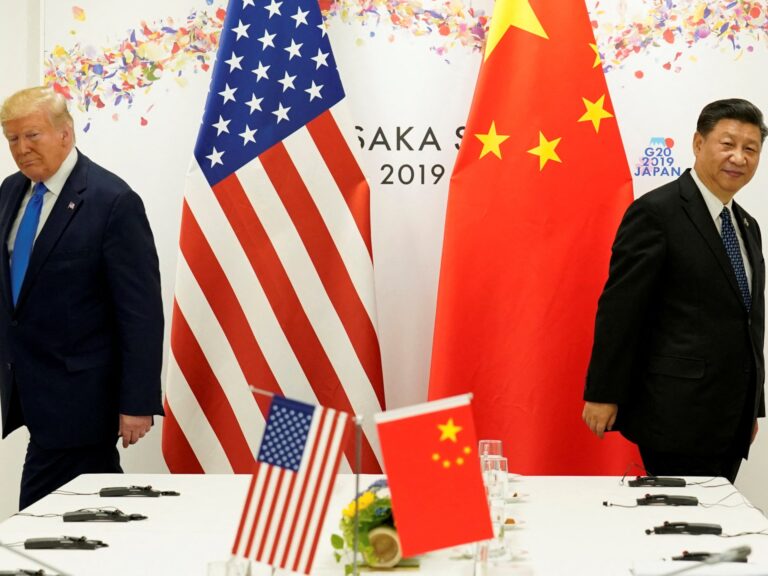Beijing said it would not back down in the face of threats and called on the US to resolve differences through negotiations.
Published October 12, 2025
China defended curbs on exports of rare earth elements and equipment but stopped short of imposing additional tariffs on U.S. imports, calling President Donald Trump’s new tariffs on Chinese goods hypocritical.
China’s Ministry of Commerce said in a lengthy statement on Sunday that the rare earth export controls, which President Trump called “astonishing” and “extremely hostile”, were introduced in response to a series of U.S. measures since trade talks in Madrid, Spain, last month.
Recommended stories
list of 4 itemsend of list
“China’s position is consistent,” the ministry said in a statement posted online. “We don’t want a tariff war, but we’re not afraid.”
President Trump on Friday announced a 100% tariff on Chinese exports to the United States and new export restrictions on critical software, effective November 1, in retaliation for China’s rare earth export restrictions.
Beijing cited the U.S. government’s decision to blacklist Chinese companies and impose port fees on Chinese-linked ships as examples of “provocative and harmful” actions, and called President Trump’s tariff threat a “classic example of double standards.”
“These actions have seriously harmed China’s interests and spoiled the atmosphere of bilateral economic and trade talks. China firmly opposes them,” the ministry said.
Unlike previous retaliatory tariffs, China has not yet announced any countermeasures.
Rare earths have been a major stalemate in recent trade negotiations between the two superpowers. They are essential to manufacturing everything from smartphones and electric cars to military hardware and renewable energy technology.
China dominates the global production and processing of these materials. On Thursday, it announced new restrictions on the export of technology used to mine and process critical minerals.
There is also a risk that the summit meeting between President Trump and Chinese President Xi Jinping at the Asia-Pacific Economic Cooperation Council to be held in South Korea later this month will be derailed by the flare-up of trade tensions between the world’s two largest economies. It was supposed to be Trump’s first face-to-face meeting since he returned to power in January.
The dispute has also rattled global markets, weighing down major tech stocks and spooking companies that rely on China’s dominance in rare earth processing.
Meanwhile, Taiwan’s Ministry of Economy said on Sunday that China’s recent export restrictions on rare earth elements are unlikely to affect the country’s semiconductor industry.
“The rare earth elements subject to the expanded ban are different from the rare earth elements required in Taiwan’s semiconductor process, so no significant impact on chip manufacturing is expected at this time,” the ministry said.
Taiwan, home to semiconductor giant TSMC, said it sources most of its rare earth products from Europe, the United States and Japan.


